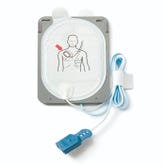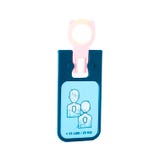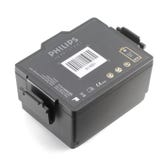What an IP Code Tells You About An AED
- Oct 28, 2019

How tough is your AED? IP ratings explained.
First, let’s start off with the basics. IP Ratings (or International Protection Rating) consist of a simple, two digit code that classifies the degree of protection provided against the intrusion of solid objects and liquids. You may also see this referred to as the Ingress Protection Rating or IP Code.
It can be tough to figure out which AED is right for you but understanding a device’s IP Rating may make finding the perfect automatic external defibrillator a little bit easier.
Ingress Protection (IP) Ratings and What They Mean
The IP ratings test is a worldwide standard established by the International Electrotechnical Commission (IEC). The test and the resulting ratings compare the ability of an electronic device to withstand exposure to dust particles and water. In a nutshell: a higher score means stronger protection against foreign objects and moisture.
The first number tells you how resistant your AED is against the ingress or penetration of solid objects. For the purposes of IP ratings, “solid objects” can include body parts, tools, and even particulates such as dust or soot.
The second digit in an IP rating indicates the level of water protection.
First IP Digit: Ingress of Solid Objects
0: Not protected
1: Protected against solid objects over 50 mm (such as hands, feet, and large tools)
2: Protected against solid objects over 12.5 mm
3: Protected against solid objects over 2.5 mm (wires, smaller tools)
4: Protected against solid objects over 1.0 mm
5: Limited protection against dust ingress
6: Totally protected against dust ingress
X: Not rated
Second IP Digit: Ingress of Liquids
0: Not protected
1: Dripping water (rain or vertically falling drops of water or condensation)
2: Dripping water when tilted up to 15°
3: Spraying water
4: Splashing water
5: Water jets
6: Powerful water jets
7: Immersion up to 1m
8: Immersion beyond 1m
9k: Powerful high-temperature water jets
X: Not rated
AED IP Ratings By Manufacturer
- ZOLL AED Plus: IP55
- ZOLL AED Pro: IP55
- Cardiac Science Powerheart G3 Pro: IP24
- Cardiac Science Powerheart G3: IP24
- Cardiac Science Powerheart G5: IP55
- Physio-Control LIFEPAK 1000: IP55
- Physio-Control LIFEPAK CR Plus: IPX4
- Physio-Control LIFEPAK Express: IPX4
- Philips HeartStart OnSite: IP21
- Philips HeartStart FR3: IP55
- Philips HeartStart FRx: IP55
- HeartSine Samaritan PAD 350: IP56
- HeartSine Samaritan PAD 450: IP56
- HeartSine Samaritan PAD 360
- Defibtech Lifeline: IP54
- Defibtech Lifeline View: IP55
AEDs with higher IP ratings are recommended for professional rescuers, outdoor locations, harsh factory environments, near marine environments, and poolside. Those with lower IP ratings should be used in controlled environments such as schools, homes, or offices.
Keep Your AED Protected with IP Rated Accessories
Many manufacturers offer durable, water-resistant carrying cases that offer additional protection. For example, Zoll’s rugged Pelican Casehas a rating of IP67 and Cardiac Science’s hard-sided case has a rating of IP57.
If you’re thinking about investing in an AED or are considering upgrading or expanding your existing program, give us a call or contact us online. We’ll happily help you find the right device for your organization. From IP ratings to batteries, we know there’s a lot to consider when purchasing an AED. At Cardio Partners, we’re happy to help you select the manufacturer and model of AED that’s best for you. For more information about purchasing a new or recertified AEDor to schedule AED training or maintenance, contact Cardio Partnersat 800-544-0004 or email us at customerservice@cardiopartners.com.








 CALL US:
CALL US: